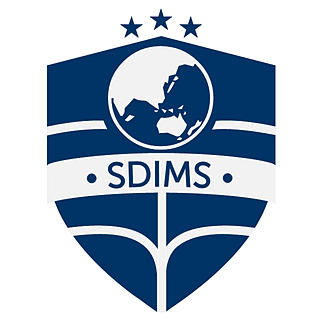Memo No. 6 For Parents | March 07, 2022
- STUDENTDESK IMS
- Mar 7, 2022
- 1 min read

07 March 2022
Dear Parents / Guardians:
In its goal of producing holistically developed learners, the Department of Education in its Memorandum DM-OUCI-2021-395 reiterates its stand on maintaining academic honesty while upholding every learner’s integrity. DepEd stressed that academic honesty is a “foundational element of learning and fundamental principle of all academic institutions. Violations of the principle deprive learners of the opportunity to gain a confident command of the material they are credited with knowing, degrade the learning process, and demean the learning quality that the DepEd is committed to promote.”
Academic dishonesty, on the other hand, is defined as any conduct that obstructs the evaluation of a learner’s progress by misrepresenting the work being assessed and evaluated, as well as the learner’s actual knowledge (www.wpi.edu). Academic dishonesty can take many forms, which can be broadly classified as follows (Whitley & Keith-Spigel, 2002):
(Note: Click the arrow > below to view the content of each of the item)
Cheating
Cheating is defined as an unauthorized use of information, materials, devices, sources, or practices in completing academic activities. For example, copying another learner’s answers during a test that should be done separately is considered cheating. Similarly, a learner who allows another learner to copy his or her work is deemed to be aiding or contributing to cheating.
Plagiarism
Plagiarism is a form of cheating in which someone takes another person’s ideas, words, design, art, music, or other works and passes them off as their own without acknowledging the source or, if necessary, seeking permission from the author.
Fabrication or Falsification
Fabrication or falsification involves the unauthorized creation or change of information in an academic work or activity. For example, artificially creating data when it should be collected from an actual experiment or inventing a source of information that does not exist is considered fabrication or falsification.
Sabotage
Sabotage is the act of interfering with or damaging another person’s work to prevent that person from successfully completing an academic task. Destroying someone else’s artwork, experiment, or design, for example, is considered sabotage. Failure to contribute as required to a team project can also be considered academic sabotage.
Contract cheating
is another form of academic dishonesty, which may happen in any of the following situations (Gorenko, 2020): - unpaid assistance from friends or family members to complete the work in place of the learners - a paper that has been taken from a free essay website and is being used as the learner’s own work - an academic assignment done for a fee by a third-party service
In line with this, we would like to reiterate our Policy Against Academic Dishonesty:
FIRST OFFENSE:
Failing grade for the task/exam with opportunity to make-up task / exam to ONLY 70% of the total score.
Parent and student contacted and Parent-teacher Conference requested to discuss the matter and come up with a resolution.
The student, with the help of the parent, will be asked to write a reflection paper with a pledge not to commit the same offense again.
The parent and the school provide counseling to the child.
SECOND OFFENSE:
Failing grade for the task/exam with no opportunity for retake.
Parent and student contacted and Parent-teacher Conference requested to discuss the matter and come up with a resolution.
The student, with the help of the parent, will be asked to write a reflection paper with a pledge not to commit the same offense again.
School to provide counseling to the child and the parent.
THIRD OFFENSE:
Failing grade for the task/exam with no opportunity for retake. Offense shall be treated as a grave offense.
Suspension which shall not exceed three (3) days.
Parent and student contacted and Parent-teacher Conference requested to discuss the matter and come up with a resolution.
School to provide counseling to the child and the parent.
PROCEDURE IN LEARNER DISCIPLINE
STEP 1
Teacher to talk to the student involved and give the student a chance to be heard. After which, the teacher shall submit an incident report with proof of violation to the Program Director or School Head.
STEP 2
The Program Director or School Head shall issue a Notice in writing to the learner through the Parent/Guardian within three (3) working days from the date of incident/report. Included in the letter is a request for a Parent-Teacher Conference.
STEP 3
The Parent-Teacher Conference must be recorded through a minutes of conference duly signed by all parties and members present. Minutes of the conference shall then be submitted to the Program Director/School Head.
STEP 4
The Decision in writing shall be issued within 3 working days by the Program Director / School Head. Reprimand shall be final and executory.
The school recognizes the limitations of managing assessments in the current learning set-up; however, we encourage teachers, students, and parents to seek out opportunities to teach academic integrity among learners and discourage them from feeding on laziness and instant gratification as this will generate devastating effects on their values.
To acknowledge that you have read and understood the above procedures in its entirety, please fill out the form below.











Comments